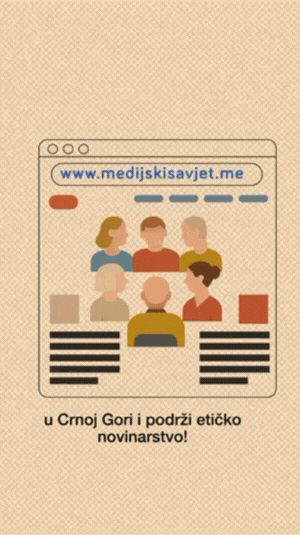Several media outlets in Montenegro this morning published a video of an attempted murder in Budva, thereby grossly violating the Montenegrin Journalists’ Code of ethics and demonstrating irresponsibility towards the public and the profession.
The publication of explicit footage of violence, including freeze frames or photographs depicting brutal scenes, does not serve the public interest. On the contrary, such content disturbs the public, contributes to a sense of insecurity, and undermines the fundamental ethical standards of journalistic reporting. The media has a duty to inform, but not to shock or exploit tragedy for the sake of sensationalism.
In this particular case, the video does not aid in identifying the perpetrator, as the attacker is not clearly visible and cannot be recognized by the general public. If there were a need for the public to assist in identifying the perpetrator, that would be the sole responsibility of the police and other competent authorities, who would provide the media with relevant information in a controlled and lawful manner.
In this case, there is not a single element that would justify a violation of the basic professional and ethical standards of journalism. The public’s right to know does not include the publication of explicit and traumatic content that does not contribute to understanding the event, does not identify the individuals involved, and has no evident value that could help clarify the case.
The Media council for self-regulation expresses concern over the increasing trend of publishing violent content in the media, which leads to the normalization of violence and the gradual desensitization of society. When the public is exposed daily to brutal scenes, there is a real danger that violence will begin to be perceived as an acceptable part of reality, which represents a deeply harmful social trend.
Sensationalism aimed solely at increasing circulation, clicks, or views is incompatible with the principles of professional journalism. Media outlets that are genuinely committed to quality and responsible public information must reject such practices.
We remind the public that the Media Law stipulates that content that causes panic, incites violence, or disturbs the public must not be published. Additionally, the Code of Journalists of Montenegro explicitly prohibits the display of scenes of explicit violence, especially when there is no clear public interest to justify it.
The Media council for self-regulation appeals to all media outlets in Montenegro to refrain from publishing such content. The public’s right to know must not be misused to spread fear and violence. In cases where it is not clear how the publication contributes to identifying the perpetrator or protecting the public interest, such information has no place in a responsible media environment.
Ranko Vujović
Executive Secretary
Media Council for Self-Regulation










